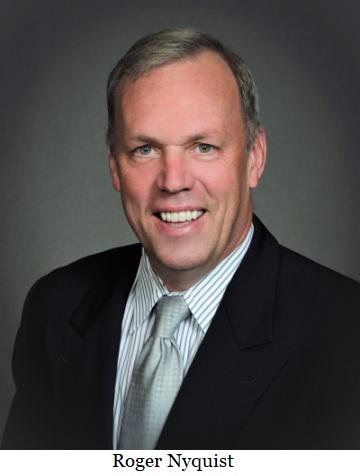 Post an Event
Post an Event
| TILLAMOOK COUNTY FAIR - 100 YEARS OF PIG N'FORD |
| Wednesday, August 6, 2025 at 10:00 am |
| The Tillamook County Fair received its recognition as one of the top ten Blue Ribbon Fairs in the nation due to its uniqueness; offering so much for fairgoers to enjoy free along with their paid admission. Fairgoers can enjoy all of the Open Class and 4-H/FFA exhibits that Tillamook County residents have prepared the year prior, free entertainment and concerts, live exotic animal displays, and a whole lot more!
FOR MORE INFORMATION
tillamookfairoffice@gmail.com
(M-F, 8 AM-5 PM) at (503) 842-2272.
Reminders:
NO OUTSIDE FOOD OR DRINK
All bags are subject to search
For the safety of all present, only trained service animals are permitted to enter Fairgrounds property. A trained service animal is any guide dog, signal dog, or other animal individually trained to do work or perform tasks for people with disabilities. |
| 4603 East 3rd Street
Tillamook, OR, 97141 |
Preparing teachers with essential knowledge to teach reading and writing
Governor Tina Kotek established the Early Literacy Educator Preparation Council through
Executive Order 23-12 in May 2023 to strengthen the preparation of teachers and school administrators to instruct elementary students on reading and writing.
The council voted to approve recommendations in its final meeting, and released
Strengthening Literacy Preparation and Support for Oregon’s Educators. These recommendations revise educator and school administrator preparation program standards for literacy instruction.
“These recommendations are a significant step forward,” Governor Kotek said. “I appreciate that the council has not just layered on new requirements. They have also tried to streamline existing standards and build on the things we’ve had and continue to be important, like dyslexia standards.”
“We must always do what’s in the best interest of our children,” said Rep. Boomer Wright (R-Coos Bay), who served on the council. “These recommendations represent a way to support teachers and principals to ensure they have the knowledge and skills to do what we’re asking them to do for students. And to make sure that happens well, we also need to set up the right level of resources and support for our educator preparation programs to meet the new expectations the Council has recommended.”
The recommendations were broken into three sections: educator preparation program (EPP) approval standards, implementation recommendations, and educator licensing standards recommendations. The
final council recommendations on educator preparation program approval standards include:
It may be disappointed to some to know that CRT and “identity” instruction remains in the curriculum regardless of the science on brain development and best practices claims. Research proves that cursive writing is an essential component for cognitive development, including improved brain function, memory, and problem-solving skills. Oregon math levels dramatically dropped after removing cursive from the curriculum. Cursive writing strengthens cross-hemisphere connections in the brain, which are essential for language development, reading, and writing, and activates areas not involved in keyboarding. Still, the council ignores viable studies.
Key takeaways from the implementation recommendations include:
- Phase in the proposed recommendations so that all Oregon EPPs are implementing new standards by the fall of the 2026-27 academic year.
- State support for Oregon EPPs to adapt to the new standards.
- Ensuring that all educators, including experienced teachers and graduates of out-of-state EPPs, are supported and held accountable for meeting high standards for literacy instruction.
- Investing in the implementation infrastructure needed to enable consistent, research-aligned implementation of new standards in educator preparation and in schools.
Key takeaways from the recommendations on educator licensing standards include:
- Preliminary licensure requirements for all newly licensed educators should take effect in 2027.
- Consider funding and capacity needs, develop processes for how all educators can demonstrate competency of standards, and minimize economic barriers to certification.
A D V E R T I S E M E N T

A D V E R T I S E M E N T
The council was directed to create recommendations to the Governor and the Teacher Standards and Practices Commission (TSPC). TSPC has already begun considering the Council’s recommendations. Was the purpose of the council to improve literacy in K-5, or train teachers to comply?
"I have been honored to serve on this council alongside an outstanding group of individuals with one goal in mind: improving literacy outcomes for all of Oregon's children,” said Ronda Fritz, council co-chair and Associate Professor at Eastern Oregon University. “We were able to move the standards for Oregon's teacher preparation programs to reflect what science tells us about how children learn to read as well as the content and methods that are critical for ensuring proficient readers. I believe these standards will give educator preparation programs a clear roadmap for designing courses and programs that will produce teachers with the essential knowledge and skills to create proficient readers and writers."
--Donna Bleiler| Post Date: 2024-06-18 12:56:56 | Last Update: 2024-06-18 19:20:46 |
The investigation into Democrat donations still lingers
In a newsletter, Senator Daniel Bonham (R-The Dalles) said, "I am here to point out that the very people seeking to dismantle the criminal justice system through early release, shutting down prisons, reducing accountability and pushing diversion for almost every crime are turning out to be huge supporters of our criminal justice system this month."
Oregon’s Democratic leadership unsuccessfully re-elect the soft-on-crime, Soros-backed Multnomah County District Attorney Mike Schmidt.
Bonham continued, “Every “justice is served” and “no one is above the law” commentary from progressives as we head into November should serve as a shameless reminder of the hypocrisy that is alive and well in society today. And if we learned anything from this most recent District Attorney race in our state, it is that people are tired of the hypocrisy and do not believe we are better off than we were four years ago at any level.”
The Oregon Department of Justice is testing the waters of hypocrisy. A year ago the DOJ announced they were reviewing a potential criminal investigation into the Democrat Party’s failure to report a Las Vegas-based donor who gave $500,000 to the Democratic Party of Oregon under a false name of Prime Trust in the final weeks of the 2022 election that secured at least one win. The donor turned out to be Nishad Singh, an executive at the disgraced cryptocurrency exchange FTX. Oregon Roundup reported that Singh's contribution was arranged and facilitated by the fundraising consultant Senator Ron Wyden for the benefit of more than 20 Democrat candidates.
Bonham reported that “election officials with close ties to the Democratic Party tried to quietly handle the issue by prematurely announcing that no investigation was going to happen, while quietly making them pay a fine that was ambiguously reduced by over $20K.”
While officials tried to distance themselves from this fine reduction and potential cover-up attempt, a request for a continued criminal investigation was sent to the Attorney General. Attorney General Ellen Rosenblum then recused herself from the criminal investigation -- as the Democratic Party gave nearly $115,000 to her campaign fund since 2012, according to state campaign finance records.
An assistant attorney general representing the elections division wrote a legal memo stating the Democrat party “deprived the public of knowing who was contributing enormous sums of money to their party leading into a general election when election transparency is most pivotal for Oregon voters.”
A D V E R T I S E M E N T

A D V E R T I S E M E N T
Under Oregon law, it is a Class C felony to make or accept a campaign contribution under a false name. This month, we have heard many progressives state that “no one is above the law”.
Progressives are all about accountability of funds when it suits them, but it begs the question if our
Oregon Department of Justice will ever open a criminal investigation of Democrats’ 2022 misreported donation.
The accountability is particularly meaningful in the Secretary of State race and who will keep this investigation under wraps and hidden from the public.
--Donna Bleiler| Post Date: 2024-06-17 16:56:56 | Last Update: 2024-06-17 23:36:56 |
State law does not require a buffer zone for CAFO
Late last year Linn County Commissioners proposed a Code Amendment PD23-0670. The issue concerns Confined Animal Feeding Operations (CAFO) for which the commissioners had approved a one-mile setback from neighboring properties that contained dwellings. The action came because a company wants to establish a large CAFO in the Scio area that would produce millions of chickens annually.
“Linn County is one of Oregon’s most important agricultural hubs, and we have a longstanding tradition of protecting our right to farm,” reports Families for Affordable Food. “Dairy farms, feedlots, chicken barns and other operations have operated safely and within the law for many years in Linn County.”
Chicken farmers in Oregon are saying that over 1 million chickens were killed because of Bird Flu last year. They are asking why, at the same time, during an egg shortage were signs posted over the limited and expensive eggs at Winco that stated you can't get Bird Flu from eggs or chicken meat when it is cooked.
Linn County Commissioners Chair Roger Nyquist, Sherrie Sprenger and Will Tucker agreed to reopen a code text amendment process which they defined at a December 2023 meeting. The Planning Commission recommended a three-quarter mile setback and the original proposed text suggested a half-mile setback, so how did they end up with a one-mile setback? In reopening the issue, they want to include more stakeholders — such as cattle and swine breeders.
Notice was given for a hearing on June 11, then on June 18, 2024 the board will reconvene at 10 am to deliberate and make a decision. The public hearing is limited to written testimony only, which can be submitted through
Families for Affordable Food website.
A D V E R T I S E M E N T

A D V E R T I S E M E N T
The proposed amendments are to implement portions of
SB 85 (2023) relating to the establishment of new large CAFO operations. However, the bill authorizes governing body of city or county to implement a setback or buffer but does not require a buffer between CAFO and adjacent land parcels. The bill reads:
“may require the new large confined animal feeding operation to include a setback or buffer, composed of a natural or created vegetative barrier, berm or terrain, in the production area of the new large confined animal feeding operation, if the parcel of land on which the new large confined animal feeding operation would be located is adjacent to a parcel on which:
- A residential structure is lawfuly sited; or
- A structure that was lawfully sited when constructed, but no longer conforms with or is allowed under new or changed land use requirements, is sited.
If it was the intent of the legislature to require a buffer zone, the bill won’t have said “may require.” At the rate of farming animals being destroyed, it won’t be long before the next pandemic will be over malnutrition and hypoproteinemia. If this misreading of the law is implemented in Linn County with Republican commissioners, then it will be used to weaponize all bureaucracies.
--Donna Bleiler| Post Date: 2024-06-17 15:01:10 | Last Update: 2024-06-17 23:41:00 |
IP 54, Oregon Crimefighting Act, found not to convey changes to the law
Oregon Supreme Court again points out that the Attorney General performed poorly crafting a ballot title.
Chung v. Rosenblum, docket 5070965, involves a review of the Attorney General’s certified ballot title for
Initiative Petition 54 (2024) (IP 54), which was challenged by the petitioners, Sandy Chung and Yvonne Garcia.
IP 54, also known as the "Oregon Crimefighting Act," proposes significant changes to the pretrial release system for individuals charged with felonies and Class A misdemeanors in Oregon. The Act also empowers local governments to pass ordinances to fight local crime and requires the state to pay for jail space for those charged with felonies and Class A misdemeanors who need to be held until trial.
The Attorney General prepared a draft ballot title for IP 54 and, after considering public comments, modified the draft and certified the final ballot title. The petitioners, who had submitted comments on the draft, challenged the certified ballot title, arguing that the summary did not comply with the requirements set out in ORS 250.035(2)(d).
A D V E R T I S E M E N T

A D V E R T I S E M E N T
The Oregon Supreme Court reviewed the ballot title to determine whether it substantially complied with the requirements. The court agreed with the petitioners that the summary was deficient. The court wrote:
Petitioners contend that the summary in the certified ballot title for IP 54 does not comply with that standard because it neither sufficiently nor accurately describes the proposed measure’s impacts, which, they contend, “will result in a total revamp of exist-ing law and practice in several significant areas,” most notably, the law governing pretrial release and bail. They relatedly identify specific aspects of both current law and IP 54 that the summary either omits or—they contend—inaccurately describes. The Attorney General responds that the summary substantially complies with ORS 250.035(2)(d) because it uses the available limited words to both tell the voters about current law pertaining to pretrial release and then describe the substantive changes that IP 54 would make.
The court found that the summary did not adequately convey the breadth of the changes that IP 54 would effectuate, particularly in relation to pretrial release decisions at arraignment. The court concluded that the summary must be modified to clarify that IP 54 would override existing law and to provide a more accurate description of the changes that IP 54 would make to the current law governing pretrial release at arraignment. The court referred the ballot title back to the Attorney General for modification.
This measure just became more crucial since the Ninth Circuit Court just told Oregon to provide a public defender within seven days or release them. It was acknowledged by the dissenting Judge Patrick Bumatay that these are hardened criminals, "they are accused of rape, kidnap, strangulation (and) assaulting (cops).” The shortage of defense attorneys is a result of Democrat's changing the law that required an attorney to take impoverished cases.
--Donna Bleiler| Post Date: 2024-06-09 11:32:20 | Last Update: 2024-06-09 00:57:12 |
Oregon Health Authority is not stepping up to the plate
The U.S. Court of Appeals for the
Ninth Circuit ruled June 5 that a lawsuit brought by four hospital systems against the Oregon Health Authority (OHA) was wrongfully dismissed.
Legacy Health, PeaceHealth, Providence Health & Services, and St. Charles Health System filed the lawsuit in September 2022 because the OHA is failing to fulfill its duty to provide adequate access to care for people experiencing severe mental illness. With today’s ruling, the case now returns to the United States District Court for the District of Oregon, where it can continue through the legal process.
The appellate court heard oral arguments on May 8 in Seattle. In the oral arguments, counsel for OHA conceded that the lack of resources for civilly committed individuals is a “long standing, challenging problem that Oregon faces.” Ninth Circuit Judge William Fletcher responded that “it’s a challenge because Oregon is not stepping up to the plate.” In the argument, counsel for OHA further conceded that it has an obligation to make to an appropriate placement of civilly committed persons.
Over two years after this case was filed, legislators passed
HB 4002, which removes barriers and establishes programs and policies aimed at improving access to substance use disorder (SUD) treatment. It also establishes a criminal justice framework for possession or delivery of controlled substances designed to encourage treatment over penalties such as jail or probation. Legislative days this past week discussed the enforcement portion of the legislation. To date it is unclear what OHA has done to establish what the bill requires to help behavioral health issues and establish a certified community behavioral health clinic (CCBHC) program located in same geographic region as community mental health program (CMHP) to enter into collaboration agreements.
Governor Kotek also seems to be ignoring the
OHA report released earlier this year, which admits that there is a severe shortage of capacity needed to treat individuals in need of both acute and long-term behavioral health treatment across Oregon. Along with the lawsuit and HB 4002, Kotek should answer to why there is a lack of access to behavioral health units for individuals experiencing an acute mental health crisis.
Melissa Eckstein, President, Unity Center for Behavioral Health said, “We’re pleased with the court’s decision, and we’re optimistic that this lawsuit will result in a much-needed course correction from the OHA. We originally took this action because the State of Oregon consistently violates the civil rights of vulnerable Oregonians by refusing to provide care intended to restore their freedom.”
Combined, the four hospital organizations operate more than half of the state’s psychiatric beds, which are designed only for short-term acute care. However, civilly committed patients in need of long-term treatment are not being transferred from the hospitals to more appropriate facilities as the law requires. Instead, many of these patients are forced to remain for weeks, months or longer in highly restrictive acute care settings without a treatment plan tailored to meet their mental health care needs.
A D V E R T I S E M E N T

A D V E R T I S E M E N T
“Community hospitals are not equipped, staffed or designed to provide long-term mental health care,” said Alicia Beymer, Chief Administrative Officer, PeaceHealth Sacred Heart Medical Center at RiverBend. “Despite the previous dismissal of our case, we felt duty-bound to appeal on behalf of the many vulnerable patients who are being denied appropriate care.”
“The court’s ruling allows us to continue pursuing legal action to ensure that there is a functional mental health system in Oregon,” said Robin Henderson, Chief Executive, Providence Behavioral Health. “Such a system and continuum of care must include secure residential treatment facilities, as well as effective community-based services to meet the various needs of this vulnerable patient population. Oregonians won’t be able to fully realize this system until the state begins living up to its legally mandated role.”
Is government the cause, the solution, or in the way?
--Donna Bleiler| Post Date: 2024-06-07 11:26:26 | Last Update: 2024-06-07 23:31:55 |
Calls Hoyle’s Rubberstamping Biden Border Invasion While Defunding Veterans’ Healthcare “Thoroughly Egregious"
Republican candidate for
Oregon's 4th Congressional seat Monique DeSpain responded to Val Hoyle’s
vote opposing
HR 8580, which would fund Veterans Affairs and critical military programs while ending the current use of the Veteran Administration to pay for free healthcare for illegal migrants.
“Today, Val Hoyle chose partisan politics and illegal migrants over our precious military veterans to whom our nation owes so much,” stated DeSpain. “As a veteran and a retired Air Force Colonel who is deeply concerned by the clear and present national security crisis at the border, I am appalled by Val Hoyle’s thoroughly egregious vote to greenlight the Biden Administration’s looting of VA resources to pay for the chaotic border invasion that President Biden caused, and Congresswoman Hoyle repeatedly enabled.”
In her first term as our Representative, Val Hoyle has
voted against fully funding veterans’ health care and benefits and
voted to block pay raises for active-duty military personnel in July 2023. Earlier this year, Val Hoyle went to El Paso, TX, and
praised open borders while lecturing her constituents who asked her, “Why don’t you just shut down the border?” explaining that
“We need to have movement through the border and how much we need the workforce.” Seven weeks later, Texas National Guard Troops at an El Paso, TX checkpoint were overrun and assaulted by foreign military-aged males forcing their way into our country. These are the people Val wants to allow access to our limited veteran resources. In a slap to law enforcement, Hoyle recently voted against H.R.7343, the Detain and Deport Illegal Aliens Who Assault Cops Act. Last week, the Democratic Congressional Campaign Committee moved Val Hoyle to its “frontline” list of vulnerable incumbents.
“After spending her entire time in Congress voting against any effort to hold the Biden Administration accountable for its catastrophic border policy and even lecturing her constituents that we ‘need this movement through the border,’ now she has voted to take resources Congress reserved for veterans, and instead she wants to fund free healthcare for illegal migrants invited by President Biden’s border policy,” said DeSpain.
A D V E R T I S E M E N T

A D V E R T I S E M E N T
“However, Val’s vote is worse than rubberstamping bad behavior by the Biden Administration. It is a real stab in the backs of my veteran brothers and sisters waiting to access often unreasonably delayed health treatments to which they are entitled - a dereliction of duty to our veteran constituents,” added DeSpain. “Our veterans and active duty should be at the top of our priority list, but Val has put them at the back of the line. They won’t forget. Neither will I, nor will the voters.”
“Val has cast numerous shocking votes at the expense of the citizens of our district, which has exposed who her true priority is - her radical special interest ‘open borders’ masters in Washington D.C.,” said DeSpain. “Now Val’s gone too far by victimizing our veterans. Blatantly corrupt, self-serving, hyperpartisan career politician Val Hoyle is at the heart of the dysfunction in our Nation’s Capitol. Perhaps it’s no surprise that her party bosses have put her on the list of incumbents most in jeopardy of defeat in 2024.”
“As a retired Air Force Colonel and lawyer, I know what fighting for our country and our communities looks like,” said DeSpain. “I am ready to deploy to Congress to make sure my 53,000 fellow 4th District veterans are the priority while still securing our borders by all means necessary and ending the public safety crisis of fentanyl, meth, human smuggling, and crime gripping the 4th District. It all starts with retiring Val Hoyle this November.”
--Staff Reports| Post Date: 2024-06-06 19:32:43 | Last Update: 2024-06-06 19:54:44 |
Prohibition of nudity is left to local ordinances
Oregon made national news again – and not in a good way. A disturbing incident in Oregon has raised concerns about public indecency laws. A video of a father’s interaction with a Bend police officer went viral on social media after the man complained about a naked man approaching his 2-year-old son and the officer informed him it was legal.
The father shielded his child’s eyes and called 911, expecting swift action against the individual for indecent exposure. However, the responding officer surprised him by stating it is only a crime for an adult to expose his or her private parts to a minor when there is a sexual element to the act. But there is no law against the actual nudity exposure.
The
video on tiktok shows a father asking officer Jeremy Avery with the Bend Police Department to explain why an arrest could not be made after his young child encountered a naked adult on the family’s private property.
The post has over 800,000 views waking people up to how the “letter of the law” is used to give freedom to perversion, but is ignored when people deserve freedom of speech and religion. Many replies asked who determines what gratification is.
Oregon law regarding naked exposure is outlined in ORS 163.465, which states that a person commits the crime of public indecency if, while in or in view of a public place, they perform an act that is intended to arouse or satisfy the sexual desire of any person. Indecent exposure is a Class A misdemeanor punishable by up to one year in jail and a fine of up to $6,250.
What is considered public indecency? According to ORS 163.465, public indecency includes:
- Exposing one’s genitals with the intent to arouse or satisfy the sexual desire of any person.
- Performing an act of sexual intercourse in a public place.
- Engaging in any other act of sexual conduct in a public place.
A D V E R T I S E M E N T

A D V E R T I S E M E N T
While Oregon law does not explicitly prohibit public nudity, some cities and counties in Oregon have established their own laws regarding public nudity. Ordinances have been adopted, for example: Portland has a law that prohibits indecent exposure, which includes exposing one’s genitals in a public place. Lane County has a law that prohibits public nudity, except for certain events and activities that are specifically permitted.
Portland and Lane County have had incidents in the passed to instigate an ordinance. The wider the incidents the more likely state legislators will propose a law. Officer Jeremy Avery did concede that trespassing was a crime in Bend, although public nakedness was not.
--Donna Bleiler| Post Date: 2024-06-06 16:57:15 | Last Update: 2024-06-06 18:11:22 |
Small doctor-owned clinics are being bought up by large corporations and private equity firms
Oregon Representative Ben Bowman (D-Tualatin) participated on a panel at a Salem City Club event about the rapid trend of corporations and private equity firms acquiring local medical practices. He writes, “In the last 10 years, there has been a
100,000% increase in private capital invested into primary care. The scale of that increase alone should give us all pause.”
Bowman reports, “Across our state and the country at large, small doctor-owned clinics are being bought up by large corporations and private equity firms. When you replace a locally-based physician owner with a private equity firm there are serious, negative consequences. Prices go up, quality of care declines, injuries increase, and physicians burn out. In short, worse care at higher prices.
We are seeing the harm of not acting in real-time.”
Bloomberg writer, Angelica Peebles, says, “Several large companies are also making a push towards primary care in an effort to control access to more expensive specialists and influence patients' treatments over time. For example, CVS Health plans to put doctors in up to 350 of its retail pharmacies…Walgreens Boots Alliance last year purchased a controlling stake in the primary care clinic chain VillageMD, which it previously partnered with to open new primary care clinics across the United States…health insurers are expanding their primary care capacities. UnitedHealth Group's Optum unit now has more than 60,000 physicians, around half of whom are in primary care… Humana plans to open 26 new primary clinics under its CenterWell brand this year and will add between 30 to 50 more annually.
According to Peebles, this interest in primary care is partly motivated by a shift in how medical care is paid for. Private health plans, as well as government programs like Medicare, are increasingly turning towards value-based payment, which links doctors' pay to patients' health outcomes, rather than volume-based payment. This change may increase the risk that profit motivation could eventually outweigh patients' best interests.
Bowman wants to bring legislation in 2025 that will address this growing problem. He sites thousands of patients in Eugene received letters informing them that their local clinic, the Oregon Medical Group, could no longer provide care for them. They would have to find a new doctor.
Independent Health News reports that UnitedHealth’s vehicle for growth – and more profits – is its Optum Health division. Observers say the consolidation could improve the quality of care — or lead to higher prices as the corporate owners exploit their greater control.
Since the purchase of Oregon Medical Group, close to 30 physicians have left the clinic and, due to the contracts they signed with United Health, were forced to either retire from the practice of medicine or leave the community they had made their home. Those leaving the clinic reported that UnitedHealth’s focus on efficiency and profit left them feeling disillusioned and unable to provide the best care for their patients.
Bowman also reports that Oregon’s Coordinated Care Organizations (CCO), are having very important and very-under-the-radar conversation going on around the Oregon Health Plan and CCO’s model serving Medicaid population. The goal of Oregon’s CCO model is to provide a coordinated service delivery model to promote physical, behavioral, and oral health.
CCO’s were established in 2012 and is thought to have bent the cost curve. The second round of “procurement” in 2020, CCOs were given contracts and performance metrics setting the goals for the entities that provide care to low-income families. The behind closed-door meetings are for a third round of procurement. This will likely be the largest procurement process the state has ever done according to Bowman. It involves investing millions of dollars to ensure Oregonians are well cared for, and how it is distributed, and what benchmarks are set for the entities who are awarded contracts.
A D V E R T I S E M E N T

A D V E R T I S E M E N T
Bowman releases his goals for legislation to enact the next procurement process:
- Ensuring every Oregonian has access to a basic level of quality health care.
- Incentivizing upstream investments in health that lower the cost of providing medical care in the long run.
- Providing stability that ensures CCOs are rooted in the communities they serve.
- Providing flexibility so that CCOs are able to innovate and build local partnerships that better serve the needs of the people they serve.
- Ensuring there are clear accountability measures directly connected to the health outcomes of people and populations.
These sound oddly familiar to the Oregon State University
2023 Health Care Workforce Needs Assessment report done in accordance with
HB 3261 for the Oregon Health Authority. It exposed a severe health care crisis and higher than expected, partially from burnout after the pandemic. The report recommended improved support for health care professionals, expand telehealth and integrated care models, and increase the use of community-based care providers like health interpreters and peer wellness specialists to connect on a more personal level with their local communities. Had this report been acted on, would the small doctor-owned clinics been saved?
Since voters passed the right to health care, Governor Kotek hasn’t supported the universal health care board proposed cost of $2 million plan. She says it’s costly and cited potential duplications. Kotek has prioritized behavioral healthcare in response to
HB 4002. Oregonians shouldn’t be surprised that UnitedHealth is positioning their clinics to meet Kotek demands on cost reduction while expanding free care to non-insured non-residents, covered treatment for reproductive care (abortions and transitioning), the need for specialized behavioral health physicians, and the projected CCO procurement process to cover universal healthcare. It all adds up to unsustainable budgets and higher taxes.
--Donna Bleiler| Post Date: 2024-06-03 11:37:59 | Last Update: 2024-06-03 22:56:48 |
A more disciplined approach to the budget would lessen the burden on taxpayers and improve economic stability
Oregon's
June revenue forecast released by the Office of Economic Analysis indicates, despite big surpluses, significant economic challenges are ahead due to stagnant growth and high inflation. Republican leaders call for adopting a more disciplined approach to the state’s finances would help lessen the burden on taxpayers and improve economic stability.
Senate Republican Leader Daniel Bonham (R-The Dalles) said, “Across the state, Oregon families are having to tighten their budgets and make difficult choices as rising costs due to high inflation outpace their earnings. It’s time the state does the same. The latest revenue forecast indicates that the state has continued to take more than enough of our hard-earned tax dollars. The Legislature – like many of our friends and neighbors – must learn to live within its means.”
“As we navigate through this period of high inflation, rising costs, and stagnant growth, our caucus will continue to advocate for budgetary restraint to ensure the long-term viability of essential services. The Oregon Legislature must act. Soaring energy prices are an example of an inflationary pressure we can actually do something about. Through fiscal accountability and responsible spending, Senate Republicans offer policy
solutions that would provide tangible relief to working Oregonians and protect the financial well-being of all Oregon families.”
A D V E R T I S E M E N T

A D V E R T I S E M E N T
Inflation's effect on Oregonians doesn't seem to matter to Governor Tina Kotek. Government greed is the cause for inflation, and Kotek just keeps spending. Recently she proposed a $40 million investment to sustain container service at Port of Portland’s Terminal 6. This includes $35 million from her 2025-2027 budget that includes a $20 million invested into a capital program that supports ports with active container service. It is unclear where this money would go since it appears that Port of Portland Terminal 6 is the primary and could be the only container port in Oregon. The other $15 million will be dedicated to initial state funding for costs associated with the Lower Columbia River Channel Management Plan. However, only $5 million that she is requesting from the legislative Emergency Board will go to directly resolve the shortage at Terminal 6.
Kotek response on the forecast, “Oregon’s economy continues to be stable and productive. We have made meaningful progress on issues of top concern for Oregonians and worked to move our economy in the right direction. I look forward to continuing to partner with the legislature to focus on meeting people’s needs in every part of the state, from housing to safe schools to behavioral health services.”
--Donna Bleiler| Post Date: 2024-05-31 11:03:20 | Last Update: 2024-05-31 01:17:48 |
“Make sure you’ve renewed your registration and put the decals on your boat correctly, or you could face a $265 citation.”
The Oregon State Marine Board, chaired by Laura Jackson, in partnership with 31 county sheriff’s offices and the Oregon State Police, will be looking for expired boat registrations and required equipment compliance on state waterways as part of “Operation Ship Shape.”
“Boat operators are required to have current registration decals on the bow of their boats and carry the Certificate of Number on board,” says Brian Paulsen, Boating Safety Program Manager for the Marine Board. “Make sure you’ve renewed your registration and put the decals on your boat correctly, or you could face a $265 citation.”
Any boat powered by a motor – electric, gas, diesel, and all sailboats 12 feet and longer must be currently registered when on the water, even when docked or moored. This includes any kayaks and drift boats with an electric motor. Paulsen added, “Each current boat registration brings in additional federal funds which go back to boaters for program services.”
Motorboat registrations are valid for two calendar years and expire on December 31st of the second year. The cost for registration is $5.95 per foot rounded up, plus $5.
Paddlers with boats 10 feet and longer must carry a Waterway Access Permit. Three permit options are available: One week for $5, one calendar year for $17, and two calendar years for $30.
A D V E R T I S E M E N T

A D V E R T I S E M E N T
Boaters can renew their registration or purchase Waterway Access Permits through the agency’s Boat Oregon Store for the fastest service. After completing their online transaction, boaters with motorized boats can print off a temporary permit. Waterway Access Permits can be printed directly after purchase. Multiple purchases can be made under one online transaction. The agency’s online store has a $1.50 portal provider fee. If you need assistance online, please contact the Marine Board at marine.board@boat.oregon.gov or call 503-378-8587. There's also an online help page acclimating new users to the store.

Marine officers will also be looking for the required safety equipment. “Life jackets are the most important safety equipment boaters must carry, and there must be enough on board that fit every passenger,” Paulsen adds. “We’ve seen three years of declines in boating fatalities and want this year to be the safest on record. In 2023, 11 out of 13 victims were not wearing a life jacket, so find a life jacket you’ll wear for the type of boating you’re doing.”
For any titling and registration questions, visit
Boat.Oregon.gov and click on the Title & Registration tab at the top of the page.
--Staff Reports| Post Date: 2024-05-30 13:46:46 | Last Update: 2024-05-30 14:00:28 |
A K-9 alerted to the presence of illegal substances
Four Oregon State Police traffic stops along Interstate 5 have yielded significant drug seizures in the last month. Oregon State Troopers seized fentanyl, methamphetamine, PCP, and other illegal drugs bound for Oregon streets. The targeted operations are a collaboration among Oregon State Police patrol, K-9, High Intensity Drug Trafficking Areas Investigation Team, and Criminal Apprehension through Patrol Enforcement programs.
OSP Capt. Kyle Kennedy said, “Oregon State Police is diligently working to stop the flow of illegal drugs to our communities. Fentanyl continues to have devasting effects on Oregon’s communities, and we hope the constant pressure will deter and prevent the transportation of illegal drugs to and through our state.”
On Wednesday, May 8, 2024, at 9:50 a.m., an OSP K-9 trooper stopped a vehicle on I-5 in Linn County for a traffic violation. During contact with the driver, the trooper suspected possible criminal activity. A K-9 was deployed around the outside of the vehicle and alerted to the presence of illegal substances. During a search of the vehicle, the trooper located 10,000 pills suspected to be laced with fentanyl in the vehicle’s trunk.
On May 14, 2024, at 1:13 p.m., an Oregon State Trooper from the Salem Patrol Office stopped a vehicle for a traffic violation on I-5 near milepost 256 in Marion County. During the stop, the trooper observed contraband in the vehicle and suspicious behavior by the vehicle occupants.
During a consent search of the vehicle, the trooper located 4.6 pounds of fentanyl, 1 pound of PCP, 84 grams of suspected methamphetamine, and 14.2 grams of cocaine.
The driver, Edgar Izaguirre Torres (33), whose city of residence is unknown, and the passenger, Marvin Fabian Oseguera Escoto (19) of Auburn, WA, were arrested for distribution of a controlled substance. Once the investigation is complete, additional charges will be referred to the prosecuting agency.
A D V E R T I S E M E N T

A D V E R T I S E M E N T
Oseguera Escoto was additionally arrested on a California warrant for distribution of a controlled substance.
On May 21, 2024, at 8:40 a.m., an OSP K-9 Trooper stopped a vehicle for a traffic violation on I-5 northbound at milepost 148. The trooper contacted the vehicle occupants and noticed signs of criminal activity. The driver and passenger fled from the vehicle on foot. The trooper caught and detained both suspects a short distance from the vehicle.
The K-9 was deployed around the outside of the vehicle and alerted to the presence of illegal substances. A search warrant was granted, and 42,000 suspected fentanyl-laced pills and approximately 8 pounds of fentanyl powder were found inside the vehicle.
The driver, Lauro Parra Moreno (25) of Pittsburgh, CA, was arrested for misdemeanor elude, criminal trespass II, Possession of a controlled substance II, and Delivery of a controlled substance I. The passenger, Jesus Acosta Parra (20), of Pittsburgh, CA, was arrested for criminal trespass II, delivery of a controlled substance II, and possession of a controlled substance II.
The investigation is ongoing, and no further information is available for release at this time.
On May 23, 2024, at approximately 11 a.m., an Oregon State Police K-9 Trooper stopped a vehicle for a traffic violation on I-5 near milepost 225 in Linn County. The vehicle was occupied by an adult couple and their 6-month-old infant.

During a consent search of the vehicle, the trooper located 136 grams (about one-third of a pound) of fentanyl powder and mannitol, which is a common cutting agent for fentanyl. The fentanyl was located in the trunk of the vehicle near the baby’s formula and clothing.
The driver, Meslin Danexi Gamez Barrientos (30) of Oakland, CA, was arrested for possession and delivery of a controlled substance and endangering the welfare of a minor. The passenger, Maryori Estefani Ochoa Chapas (30) of Oakland, CA, was arrested for possession and delivery of a controlled substance and endangering the welfare of a minor.
The infant was placed in protective custody by the Oregon Department of Human Services.
--Staff Reports| Post Date: 2024-05-29 13:16:06 | Last Update: 2024-05-29 13:54:53 |
Best interest means Oregon has a moral and upright standard
Julia Shumway wrote a good article in the
Capital Chronicle on the Primary Republican election results and the shifting of styles. She writes, “No Senate Democrats faced primaries, and control of the chamber isn’t expected to change.” That may be the impression she gets from interviewing the defeated, coupled with a low turnout. But, don't forget, the largest block of voters have yet to weigh in.
The GOP senate is faced with more challenging races only because Democrat Senate president Rob Wagner barred several GOP senators from running for reelection by his biased application of policies – approving leave for Democrats that wasn’t approved for Republicans. Two of them gave notice of retirement.
What seemed to influence her article is political consultant Bryan Iverson, losing his campaign for Rep. Christine Goodwin to Noah Robinson, whom he called an “obstructionist” candidate. Iverson said, “In the Republican primaries, at least in southern Oregon, you see victories by the same hard-right-leaning candidates and not the everyday Republicans.” Maybe his campaign put Goodwin in a devious light, setting up a questionably phony residence, and creating a last-minute pro-gun organization to sway voters was more “obstructionist” than the opponent.
Iverson told
Capital Chronicle, Josephine County – or at least the Republicans in the area who showed up to vote – made it clear they wanted a different style of candidate. “They want that brand of Republicans that are just obstructionist, basically. I think that they were pushing for that from the get-go, and that’s obviously how it turned out. That’s not what Chris wanted to represent, she wanted to represent those people and have a different way of going about it than I think Noah would, but that’s not what the people wanted.”
What Iverson complained about in District 2 certainly wasn’t the case in District 1 – where the “everyday Republicans” carried the status quo vote. David Brock Smith and challenger Todd Vaughn was the most visibly ugly campaign Oregon has seen in a long time. It was started by Brock Smith when he refused to respond to radio host Rob Taylor on his relation with a California donor who has ties to China. The implication angered Brock Smith, and he still hasn’t fully explained his relationship. He was then asked to justify his flip-flopping on the ocean windmill farm proposed off the coast of Coos County. The combination spearheaded an ugly campaign out to destroy each other leaving voters to figure out the truth amidst all the accusations. Brock Smith won by 57% of the vote, but you can be sure voters are watching whether he will flip again and support ocean windmill farms.
Iverson’s “obstructionist” candidate might define Diane Linthicum who beat Klamath County Commissioner Dave Henslee. Henslee seems to think that it’s all about the money. He said of Diane, “She completely supports Dennis Linthicum’s voting record, and in my opinion, his voting record hasn’t benefited our district. I was running for people and for our district, and to try to move the needle and do some really positive things for District 28, and unfortunately, the voters didn’t see it the same way I did.”
Henslee’s view is precisely why the vote for Greater Idaho is now 13 counties strong. They are tired of metro legislators being focused only on their districts and not looking out for the best interest. For the best interest of all Oregon, there needs to be a moral and upright standard for the entire state. In that there is no compromise. Dennis Linthicum would not lower his moral values to compromise even at the threat of his position.
Former House Republican Leader Mike McLane won District 30 to replace retiring Sen. Lynn Findley and is looking forward to meeting with Senator Daniel Bonham and Senate President Rob Wagner on policy decisions. He says, “During my time as a judge, I saw in the courtroom the consequences of policy passed in Salem, and it just shaped in me a view that perfection is often the enemy of the good.” His ultimate goal is to get something that works.
A D V E R T I S E M E N T

A D V E R T I S E M E N T
Todd Nash, Wallowa County Commissioner, won District 29 to replace retiring Sen. Bill Hansell representing northeast Oregon. His plans to meet with natural resource groups including the Oregon Farm Bureau and the Oregon Cattlemen’s Association, may label him as an “obstructionist” according to Iverson. The attack that Democrat leadership is hurling at small farms will affect everyone, and voters can’t afford to ignore.
Other Senate races will have a steep battle against Democrat opponents, but more often than not, “obstructionist” candidates have received more voter attention from nonaffiliates than the status quo. It is the reason they chose not to register with a party. If voters remember that, “obstructionist” candidates will do well.
- District 5: Dick Anderson(R) vs. Jo Beaudreau(D)
- District 12: Bruce Staff (R) vs. Scott Hooper (D)
- District 14: Shane Bolton (R) vs. Kate Lieber (D)
- District 18: Brian Pierson (R) vs. Wlnsvey Campos (D)
- District 22: Michael Saperstein (R ) vs Lew Frederick (D)
- District 25: Raymond Love (R) vs. Chris Gorsek (D)
- District 27: Michael Summers (R) vs. Anthony Broadman (D)
--Donna Bleiler| Post Date: 2024-05-27 19:44:25 | Last Update: 2024-05-27 22:21:35 |
Read More Articles


























 Marine officers will also be looking for the required safety equipment. “Life jackets are the most important safety equipment boaters must carry, and there must be enough on board that fit every passenger,” Paulsen adds. “We’ve seen three years of declines in boating fatalities and want this year to be the safest on record. In 2023, 11 out of 13 victims were not wearing a life jacket, so find a life jacket you’ll wear for the type of boating you’re doing.”
Marine officers will also be looking for the required safety equipment. “Life jackets are the most important safety equipment boaters must carry, and there must be enough on board that fit every passenger,” Paulsen adds. “We’ve seen three years of declines in boating fatalities and want this year to be the safest on record. In 2023, 11 out of 13 victims were not wearing a life jacket, so find a life jacket you’ll wear for the type of boating you’re doing.”


 During a consent search of the vehicle, the trooper located 136 grams (about one-third of a pound) of fentanyl powder and mannitol, which is a common cutting agent for fentanyl. The fentanyl was located in the trunk of the vehicle near the baby’s formula and clothing.
During a consent search of the vehicle, the trooper located 136 grams (about one-third of a pound) of fentanyl powder and mannitol, which is a common cutting agent for fentanyl. The fentanyl was located in the trunk of the vehicle near the baby’s formula and clothing.

